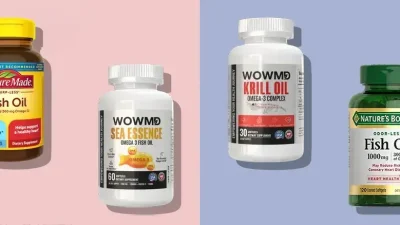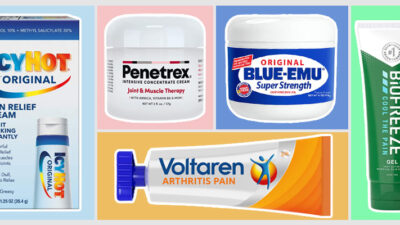Soft drinks or soda, are non-alcoholic and carbonated drinks that contain flavorings, artificial sweeteners, high fructose corn syrup and other ingredients such as carbon dioxide, sodium, and calories.
Soft drinks may also contain phosphorus and small amounts of potassium. There are several types of soft drinks: regular, caffeinated and caffeine-free just to name a few. Whatever variation of soft drink, the average American consumes 57 gallons annually, making soft drinks the primary cause of obesity in the US.
People also ask
Q. What vitamins are good for arthritis pain?
A. Nutritional deficiencies are common in arthritis sufferers which are why doctors often recommend their arthritis patient to take dietary supplements containing these nutrients to ease joint pain.. https://www.jointhealthmagazine.com/vitamins-for-arthritis-joint-pain.html
Q. What is Turmeric Curcumin Plus?
A. Turmeric Curcumin Plus is a natural dietary supplement, formulated to aid in boosting joint health and function. Its formulated from Turmeric, which is Super food and it functions well in boosting the general health and wellness of the consumer. https://www.jointhealthmagazine.com/turmeric-plus-review.html
Q. What supplement works best for joint pain?
A. Some consequences of aging – those grey hairs and crow’s feet, for instance – merely change the way we look. As we age on the outside, our joints and ligaments also get older, which often leads to joint pain. And unlike changes to our skin and hair..https://www.jointhealthmagazine.com/jointrelief
Q. How much glucosamine do I need?
A. Arthritis is a very common problem among the Americans. According to the statistics, around 22.7% of the American adults are diagnosed with some forms of arthritis, such as gout, lupus, rheumatoid arthritis, and others..https://www.jointhealthmagazine.com/whats-the-best-glucosamine-dont-take-the-wrong-kind.html
Q. What is the main cause of arthritis?
A. Arthritis is a condition that affects the body’s musculoskeletal system, mainly the joints. It’s reported that this condition is the main reason for disability among people over the age of 55 in the western countries..https://www.jointhealthmagazine.com/causes-of-arthritis.html
Q. What are the side effects of taking Omega XL?
A. Omega XL is a dietary supplement that is designed to help people with painful joints. The products is advertised as a natural supplement that uses handpicked ingredients. According to the producers..https://www.jointhealthmagazine.com/omega-xl.html
Q. Can allergies cause body aches?
A. Rarely do people associate joint pain with allergies. The truth however is that when allergies cause inflammation, joint pains are inevitable. Well, let’s first try to understand what allergies are .The Meaning of Allergies..https://www.jointhealthmagazine.com/how-is-joint-pain-tied-to-allergies.html
Q. What causes pain in the finger joints?
A. Imagine your fingers aching every time you use them. That could be awful. You cannot push a key on your laptop, complete a message on your Android phone, hit those guitar chords, thoroughly and thoroughly clean your body or the plate you used last night..https://www.jointhealthmagazine.com/finger-joint-pain.html
Q. What is in vital 3?
A. Vital 3 is a natural joint supplement that is sold and marketed to promote healthy joint muscles and at the same time to promote joint comfort and improve joint lubrication. As a long term joint care ingredient, this product is touted to work within the first six weeks..https://www.jointhealthmagazine.com/vital-3.html
Soft Drinks Can Be Addicting!
One of the leading soft drinks company is Coca-Cola Company, its cola product (Coke) among one of the highest-selling carbonated beverage in the market.
Like other colas, Coke has a unique “biting” taste which is a result of the carbonation process. A single can of Coke contains 10 teaspoons of sugar, so much more than the recommended daily intake!
An infographic by the British pharmacist Niraj Naik shows that after an hour of consumption of Coke, individuals will experience sugar crash – where your insulin levels are at peak and harmful levels of sugar are disposed of in your bloodstream which leads to a cycle of wanting to consume more sugar throughout the day.
Osteoarthritis and Joint Pain

Osteoarthritis occurs when the cartilage in the joint is damaged. The cartilage acts as a cushion to reduce the rubbing of the joints. There are several causes for joint pain, and osteoarthritis, also called degenerative arthritis, is one of the most common.
Recent studies have asserted that soft drinks have negative impacts on bone health. Aspartame, commonly found in diet cola, is an artificial sweetener that substitutes sugar. It increases the levels of acidic pH in the body which results in joint pain. Other ingredients found in soft drinks may also worsen osteoarthritis by deteriorating bone health.
Studies Linking Soft Drinks to Deterioration of Bone Health
Multiple studies have claimed that cola drinks, and not other types of soft drinks, are the main culprit for bone loss.
One of the studies aiming to determine the effects of soft drinks in the body is the Framingham Osteoporosis Study. The study showed that women are at more risk of lower bone mineral density compared to men, even if the latter consumes more cola drinks.
Additionally, bone mineral density loss occurs more frequently at the hips, although no further studies have explained as to why. However, other carbonated beverages which are non-cola have shown no effect on bone mineral density.
The Framingham study has helped researchers and experts to form three famous theories on the effects of soft drinks to bone health:
1. Some researchers claim that the loss of bone mineral density is not directly caused by cola consumption; however, people who consume more cola have the tendency to decrease their consumption of other beverages, including milk which is a primary source of calcium.
This theory has met lots of speculations especially since people who consume non-cola carbonated beverages also have the tendency to decrease the intake of other beverages including milk, however, there has been no found link between non-cola carbonated beverages and lowered bone mineral density.
2. Phosphorus can also be found in cola drinks and is considered responsible for a human’s bone mass. However, some experts theorize that phosphoric acid can cause low bone mineral density. Phosphorus acts in the digestive tract, binding calcium, and magnesium.
A bone is made up of salts of calcium and magnesium known as apatites, which are good for bone health only if they are formed in the bone. However, since phosphorus acts in the digestive tract by binding calcium and magnesium, phosphoric acid may actually lower the amount of calcium and magnesium available bone formation.
Additionally, increased consumption of phosphoric acid from cola drinks may also lower the body’s calcium-phosphate ratio. This imbalance in calcium and phosphate does not improve bone formation as one is needed for the other to function fully.
Despite this theory providing sound analysis, there is one major flaw: chicken and cheese also contain phosphoric acid in levels which are much higher than those found in cola drinks, yet chicken and cheese have no known effect on bone mineral density.
The Framingham cola study has also shown that cola and non-cola drinks have no differences in phosphorus content.
3. The third theory is probably the most accepted and recognized by experts. Numerous studies have directly linked caffeine to lower bone mineral density. Caffeine produces acidic metabolites which can transport calcium from the bones and move them to the bloodstream. Since calcium can only affect bone health if the calcium salts are formed in the bone, this process greatly decreases calcium production and absorption, slowing down the bone formation process.
The study took women aged 20-40 years as participants and divided them into groups that would take water, milk, caffeinated drink, non-caffeinated drink, drink with phosphoric acid, and drink with citric acid, an alternative for phosphoric acid. Only the caffeinated drinks increased urinary calcium excretion, and strangely, milk has also shown the same effects.
Furthermore, the rate of calcium loss is the same in groups taking caffeinated drinks with phosphoric acid and groups taking drinks with caffeine and no phosphoric acid.

How Much is Too Much?
There is no established limit on the consumption of soft drinks; however, it is important to note the following information. Cancer cells feed on sugar and since soft drinks contain large amounts of sugar (fructose and other artificial sweeteners), daily and large consumption of soft drinks are often linked to different types of cancer.
According to the Comprehensive Reviews in Food Science and Food Safety study, another harmful preservative found in soft drinks is sodium benzoate, which causes DNA damage and potentially leads to cirrhosis of the liver. Soft drinks have also been proven to lead to diabetes, high cholesterol, high blood pressure, premature aging, and heart diseases.
Possible Ways To Avoid the Progression of Osteoarthritis and Joint Pain
There are several ways to prevent osteoarthritis and joint pain, or the progress of this disease on people who are already diagnosed with it.
1. Reduce the consumption of soft drinks. Since most studies have not succeeded in clearly establishing a direct link between soft drinks and their effect on bone health, it would be a good measure to reduce your consumption of soft drinks or avoid it altogether. Studies that provided participants with separate soft drink ingredients have not found any strong evidence that these ingredients can separately produce effects which are dangerous to bone health.
2. Increase your consumption of milk and orange juice, and other foods which are good sources of calcium to increase bone health.
3. Take calcium and vitamin D supplements. People who suffer from certain types of diseases may find it difficult to maintain healthy levels of calcium and vitamin D because of their body’s incapacity to properly absorb and process calcium and vitamin D.

Conclusion
These studies give us all one clear conclusion: soft drinks can deteriorate your bones and worsen your osteoarthritis. From bone loss to cancer, soft drinks in general lead to various dangers that affect not only our bone health but the body’s overall well-being.
There have been no proven health benefits one can get from consuming soft drinks and despite the invigorating taste and biting refreshment soft drinks has to offer, the responsibility in moderating and avoiding overconsumption of these beverages still falls in your hands. When it comes to our health, it is always better to be safe than sorry.

![Soft Drink May Worsen Knee Osteoarthritis [Study]](https://www.jointhealthmagazine.com/wp-content/uploads/2017/05/soft-drinks_worsen.jpg)





 This article changed my life!
This article changed my life! This article was informative.
This article was informative. I have a medical question.
I have a medical question.
 This article contains incorrect information.
This article contains incorrect information. This article doesn’t have the information I’m looking for.
This article doesn’t have the information I’m looking for.